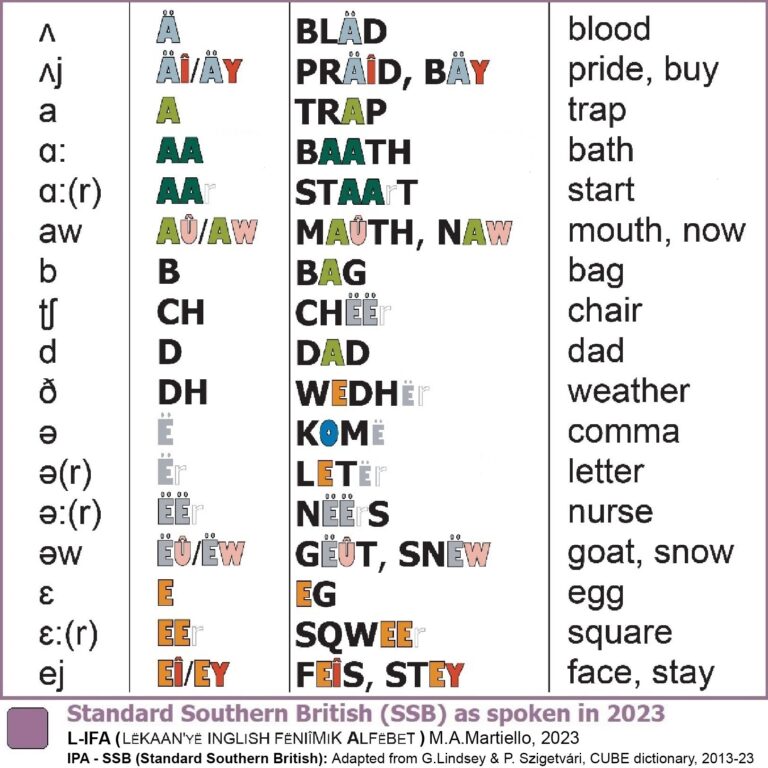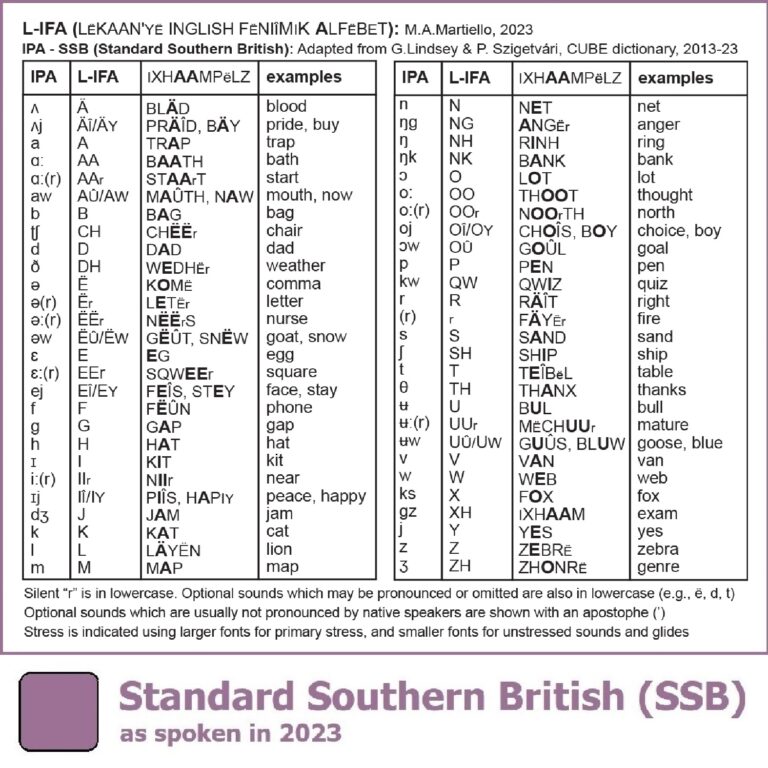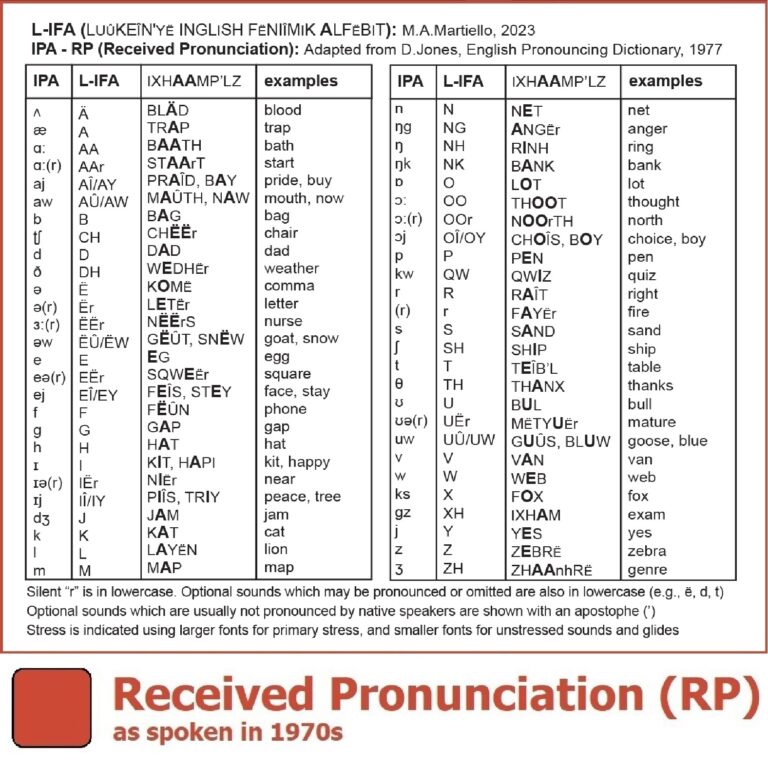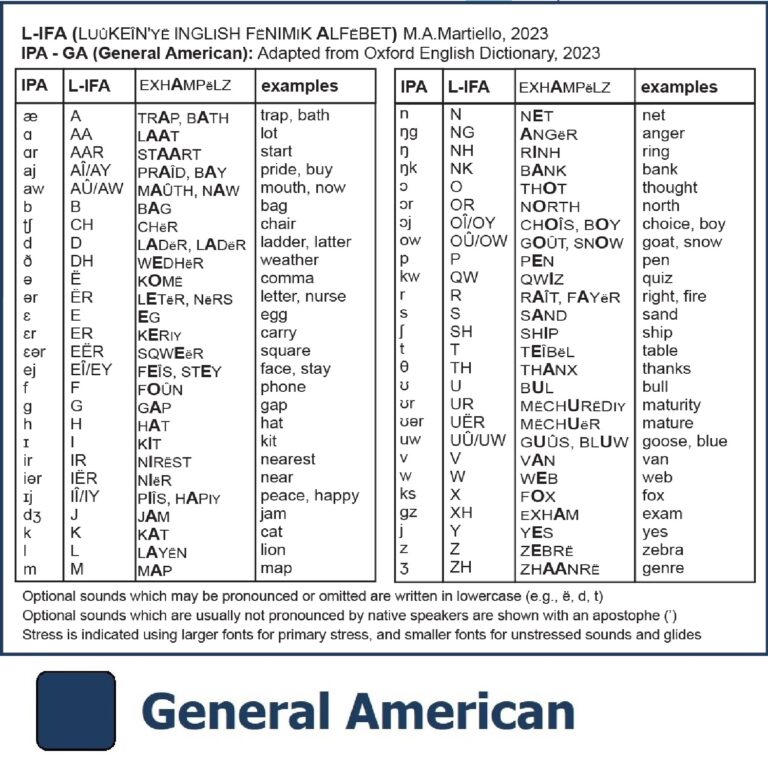L-IFA Phonemic Alphabet
A User-Friendly Alternative to IPA for English Learners
The /LËKAAN'YË INGLISH FËNIÎMIK ALFËBET/ (L-IFA) is an efforless alternative to the International Phonetic Alphabet (IPA), specifically developed for learners of English as an additional language. While IPA is commonly used in dictionaries and educational materials to indicate word pronunciations, it can pose challenges for learners due to its unfamiliar and ambiguous symbols, making it difficult to visualise and memorise words. I remember repeatedly looking up the same words, like [bəˈluːn], [ˈlɪtrətʃə(r)], [ˈsuːərɪdʒ], only to forget their pronunciation moments later. The IPA was originally devised to transcribe the complete spectrum of speech sounds in all languages, and as a result, it is better suited for phoneticians rather than English learners. An Intuitive Bridge Between Spelling and Pronunciation
In response, L-IFA was developed as a bridge between spelling and pronunciation. It retains standard spelling whenever possible, especially for consonant sounds, while harmonizing it for more complex vowel sounds. 
L-IFA employs only a limited number of additional symbols, making it easily accessible for learners. It is written in uppercase to reinforce pronunciation over written form; while building on previous spelling knowledge. Silent "r" is in lower case. Optional sounds, which may be omitted or pronounced, are also in lowercase. Optional sounds, which are usually not pronounced, are depicted with an apostrophe. Once I wrote my frequently searched words as /BËLUÛN/, /LIT'RËCHËr/, /SUWËRIJ/, I no longer needed to search for their pronunciation again. A Simplified Learning Journey: Just the Essential Detail
L-IFA's flexibility allows for customization to cater to learners of specific accents, with existing models derived from IPA for 12 of them, including Standard Southern British (SSB), Received Pronunciation (RP), and General American (GA). 


While IPA remains more suitable for phoneticians when comparing different accents in linguistic analysis due to its ability to describe even the most subtle differences, English learners do not require this level of detail. Instead, L-IFA serves them much more effectively by focusing on the essential aspects of English pronunciation, thus facilitating their learning journey. Standard Southern British (SSB)
London's current accent
External Links: Other Phonemic Respelling Systems
♦ Benjamin Franklin's Phonetic Alphabet A Reformed Mode of Spelling, 1779
♦ American Heritage Dictionary Pronunciation Symbols HarperCollins Publishers, N.D.
♦ BBC Phonetic Respelling BBC news, N.D.
♦ Dictionary.com Phonetic Respelling Dictionary.com, 1995-2023
L-IFA Phonemic Alphabet - Copyright © M. Arcangelo Martiello, 2023. All rights reserved. Copyright protected with www.protectmywork.com Reference Number: 20818230723S009. Commercial use without prior written permission is strictly prohibited. Prior written permission is always required in all cases where reproduction is intended for financial gain, regardless of the medium or context. Reproduction, whether in whole or in part, through any means such as books, journals, newspapers, magazines, and web posts, requires prior written permission. Usually, permission will be granted for free, for a nominal fee, or for payment in kind, except in cases where L-IFA plays a substantial individual role. No prior permission is required for personal use. For example, you can reproduce the transcription in L-IFA of London stations for your own learning. No prior permission is required in educational context. You can use L-IFA as part of an educational course, lecture, presentation, report, or thesis. For all other cases, it is necessary to contact us through the contact form.
Tagged english pronunciation, esol, ipa, phonemic alphabet, phonics
